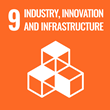
Project information
Developing and deploying SOC capabilities for the academic sector - a teamwork of Universities and RTOs in the CEE region
(SOCCER)
- Project Identification
- 101128073
- Project Period
- 10/2023 - 9/2026
- Investor / Pogramme / Project type
-
European Union
- DIGITAL EUROPE
- MU Faculty or unit
-
Institute of Computer Science
- RNDr. Martin Laštovička, Ph.D.
- Mgr. Daniela Belajová
- Ing. Tereza Beluská
- Ing. Milan Boháček
- Mgr. Pavel Brejcha
- RNDr. Milan Čermák, Ph.D.
- RNDr. Martin Drašar, Ph.D.
- Mgr. Adam Chovanec
- Tomáš Juránek
- Ing. Martin Kovařík
- Mgr. Rudolf Lukáč
- Mgr. Dávid Magušin
- Mgr. Bc. et Bc. Natalia Peterková
- Jakub Phan
- Vít Procházka
- Mgr. Matúš Raček
- Bc. Jiří Rája
- RNDr. Ádám Ruman
- RNDr. Vít Rusňák, Ph.D.
- Bc. Matěj Smyčka
- Bc. František Stupka
- RNDr. Stanislav Špaček, Ph.D.
- RNDr. Daniel Tovarňák, Ph.D.
- Cooperating Organization
-
CESNET
- Responsible person Ing. Martin Žádník, Ph.D.
- Responsible person Roman Šenkeřík
- Responsible person Michal Mešťan
Tartu Ülikool
- Responsible person Ivar Koppel
- Responsible person Lucjan Stalmach
- Responsible person Darius Štitilis
- Responsible person Izabela Albrycht
- Responsible person Mariusz Kwinta-Pudełko
Developing and deploying SOC capabilities for the academic sector - a teamwork of Universities and RTOs in the CEE region project is aimed at strengthening the cybersecurity capabilities and resilience of the EU by supporting the development of Security Operations Centres (SOC) preparedness, readiness, capabilities, and infrastructure within the academic sector – Universities and Research and Technology Organisations (RTOs) particularly in the Central Eastern Europe (CEE). The CEE region is now being heavily affected by a multitude of cyber operations executed parallelly to growing geopolitical tensions, the same trend can be observed regarding the academic centres which are now under a permanent threat, experiencing “the highest volumes of attacks every month in 2022 and in 2021”. Thus, the project is expected to support a structured and underpinned with unified methodology, development and deployment of SOC infrastructure and services within academic centres involved in the project’s consortium. This includes a creation of a Toolbox to share best practices regarding the SOC establishment and models of possible SOC services deployment and integration. Academic sector saturation with given SOC solutions will result in better monitoring, detection and response to cyber-attacks and threats, including knowledge and cybersecurity threat intelligence (CTI) sharing (vulnerability databases), as well as supporting the popularisation of a framework for joint reaction against cyber incidents (FIRST, SIM3). An important objective of the project is a popularization of knowledge about the SOC development, deployment, and functioning and a buildout of relevant SOC’s skills across cybersecurity community within universities, a future grouping of cybersecurity professionals expected to support private and public entities in upgrading their cybersecurity capabilities.
Sustainable Development Goals
Masaryk University is committed to the UN Sustainable Development Goals, which aim to improve the conditions and quality of life on our planet by 2030.


